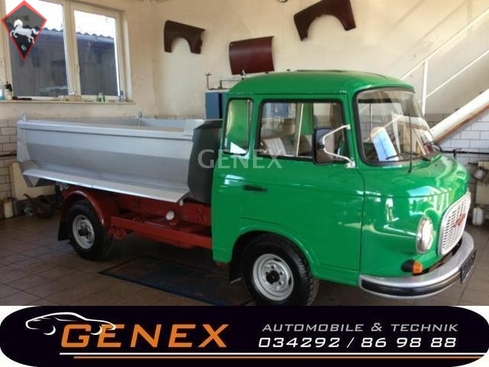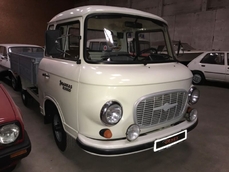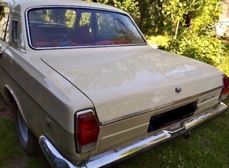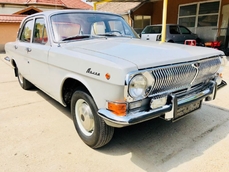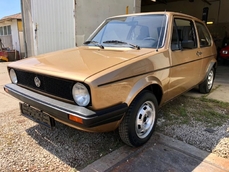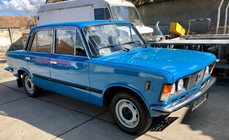Wartburg 1000 4-Takt "Kipper" 1990
General description :
der Eyecatcher schlechthin,Barkas 1.3 "Kipper-Mulde",voll funktionsfähiges Einzelstück als 4-Takter,komplett restauriert
bitte bei Besichtigungsabsicht Termin vereinbaren da unsere Fahrzeuge z.T.unterschiedliche Standorte haben können,sie suchen Ihr Wunschfahrzeug,fragen sie uns....(z.T.noch mehrere am Lager)
keine Haftung für Inseratsfehler!
GENEX,schon immer etwas Besonderes!:-)
1990 Wartburg 1000 4-Takt "Kipper" is listed for sale on ClassicDigest in Beuchaer Str. 58DE-04821 Brandis by Genex Automobile & Technik for €13900.
Car Facts
Car type : Car Make : Wartburg Model : 1000 Model Version : 4-Takt "Kipper" Engine size : 1.3 Model Year : 1990 Location : Beuchaer Str. 58DE-04821 Brandis Vehicle Registration : Undefined
13900 €
Seller Information
Genex Automobile & Technik
Genex Automobile & Technik
+49 (0)34292 50881764
Genex Automobile & Technik
+49 (0)34292 50881764
People who viewed this Wartburg 1000 also viewed similar Wartburg listed at ClassicDigest
Other cars listed for sale by this dealer
About Wartburg
The Wartburg automobile brand has a unique history originating from the Eisenach Automobile Factory in Germany, which later became a part of the state-owned IFA (Industrieverband Fahrzeugbau) in East Germany. The Wartburg cars were manufactured in Eisenach and were a significant part of the automotive industry in East Germany.History of Wartburg:
Origins: The roots of Wartburg can be traced back to the late 19th century when the Eisenach factory was established. Post-World War II, the factory came under Soviet control and was nationalized, leading to the production of Wartburg vehicles.
Nationalization and Formation of Wartburg Brand: The Eisenach plant, now under state ownership, began producing vehicles under the Wartburg name, which derived its name from the Wartburg Castle, a symbol of German history.
Notable Models:
Wartburg 311 (1956-1965): One of the iconic Wartburg models, available in various body styles including sedan, coupe, and estate. It was known for its simple yet functional design and a two-stroke engine.
Wartburg 353 (1966-1988): This model became one of the most famous Wartburgs. It was produced in sedan, coupe, and estate variants and featured improvements in engine technology compared to the earlier models.
Wartburg 312 (1958-1965): An upgraded version of the 311 series, it offered more power and some additional features while maintaining the practicality and reliability characteristic of Wartburg cars.
Wartburg 1000 (1966-1988): An evolution of the 353 series, it featured modernized design elements and enhancements in performance and comfort.
Unique Features and Design:
Wartburg cars were known for their simplicity, reliability, and affordability. They were designed to cater to the needs of the populace in East Germany and some Eastern European countries. The design of certain models, like the 311 series, had a resemblance to the Mercedes-Benz 190SL, especially in the grille and certain styling cues, though at a much lower price point.
Legacy and Decline:
After the fall of the Berlin Wall and the reunification of Germany, Wartburg struggled to compete in the modern automotive market due to outdated technology and lack of investment. Production ceased in 1991, marking the end of the Wartburg brand.
While Wartburg cars may not have been as advanced or luxurious as their Western counterparts, they hold a significant place in automotive history, representing the automotive industry in East Germany and offering reliable transportation to many people during a particular era. Despite their limitations, Wartburg cars remain a subject of interest among automotive enthusiasts and collectors for their unique historical significance.
